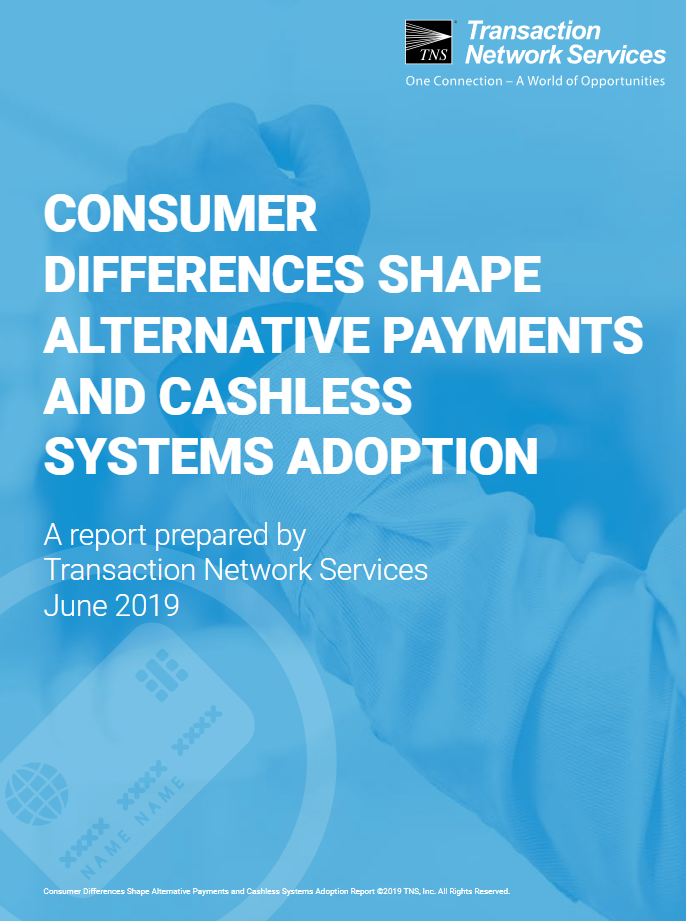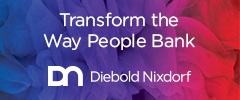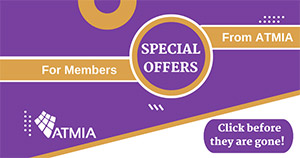
TNS Report Shows Alternative and Cashless Payments Adoption at an Inflection Point with Security a Concern to Wider Usage
Tuesday, June 11, 2019
View ShowroomJune 11, 2019 – In a study commissioned by Transaction Network Services (TNS) consumers expressed their openness to embracing alternative payment options, including the use of wearables and smartphones. However, acceptance of cashless payments comes with a high degree of concern surrounding the ability to secure these devices.
TNS’ study, Consumer Differences Shape Alternative Payments and Cashless Systems Adoption,* surveyed more than 3,000 consumers in the United States, United Kingdom and Australia. It explores their attitudes toward making payments on wearables, mobile apps and cashless systems as well as the role of cash in the payments mix. The study illuminates differences in opinion across geographic location, age groups, and gender, and also highlights the anxiety consumers have about security. 
Some of the significant findings of the report are:
- 44% of respondents are willing to make a payment using a wearable device like a ring or a bracelet;
- Just under two-thirds (65%) expressed that security concerns would stop them from using a wearable device to make a payment;
- Australians are most concerned about security (68%), versus Americans (64%) and Britons (63%);
- More than half of male smartwatch owners have used it to make a payment;
- A majority of respondents (55%) like using mobile payment apps on their smartphone to make payments because they are quick and easy. US adults are the highest adopters here with 59% preferring the convenience of mobile payment apps;
- Only 60% of US respondents made on average at least one contactless payment each week, as compared to 75% of Australians and 79% of Britons; and
- When asked about cashless systems specifically in a university setting, 73% of adults said that this was preferred over carrying cash, locating an ATM, or having the right change for a machine.
“This initial study reveals a promising trend for alternative payments,” said Bill Versen, Chief Product Officer for TNS. “Mobile and wearable devices are demonstrating strong acceptance, and TNS believes this trend will only accelerate as the technology becomes more pervasive.”
But the report also revealed that security remains a concern. “Merchants need to continue to invest in and deploy payment systems that protect against data breaches,” commented Versen. “As the report illustrates, a lack of security is really the only gating factor to enabling a wider adoption of cashless payments.”
The TNS report also provides some interesting insights into how consumer payment preferences may evolve as the move to a cashless society gathers pace.
TNS’ report is available to download here or email [email protected] to request your copy.
Founded in 1990, TNS is a trusted partner to the payments industry, providing services across Europe, the Americas, and the Asia Pacific regions. TNS offers a broad portfolio of solutions, including secure and resilient transaction delivery services that are used by many of the top banks, transaction processors and ATM deployers around the world. TNS’ Network Operating Centers in the US, UK and Australia provide 24x7x365 support to all of its customers. TNS is a Level 1 PCI DSS certified service provider and a global board member of the ATM Industry Association (ATMIA). For more information about TNS, visit www.tnsi.com.
*KANTAR commissioned a survey on behalf of Transaction Network Services. The survey interviewed 1,050 US adults, 1,022 Australian adults, and 1,046 UK adults. The survey was conducted by online self-completion interviews between 17th – 21st January 2019 by Kantar. The survey is designed to be nationally representative of adults interviewed per country. The surveys use a quota sample based on age interlocked within gender, and a regional quota. Post fieldwork correctional weighting within age, gender and region, ensures the veracity of the survey.
Additional Resources from Transaction Network Services (TNS Inc)
- 4/16/2024 - TNS Launches Complete Commerce - an End-to-End Payments Solutions Stack
- 9/19/2023 - Euro Automatic Cash Links with TNS to Provide Nationwide Managed Connectivity for ATMs
- 6/26/2023 - TNS Upgrades European Backbone
- 5/23/2023 - TNS Launches Full-Suite of Financial Infrastructure Services Across Canada
- 5/1/2023 - TNS Enterprise Branded Calling Receives 2023 CUSTOMER Product of the Year Award
- Show All Transaction Network Services (TNS Inc) Press Releases / Blog Posts



























